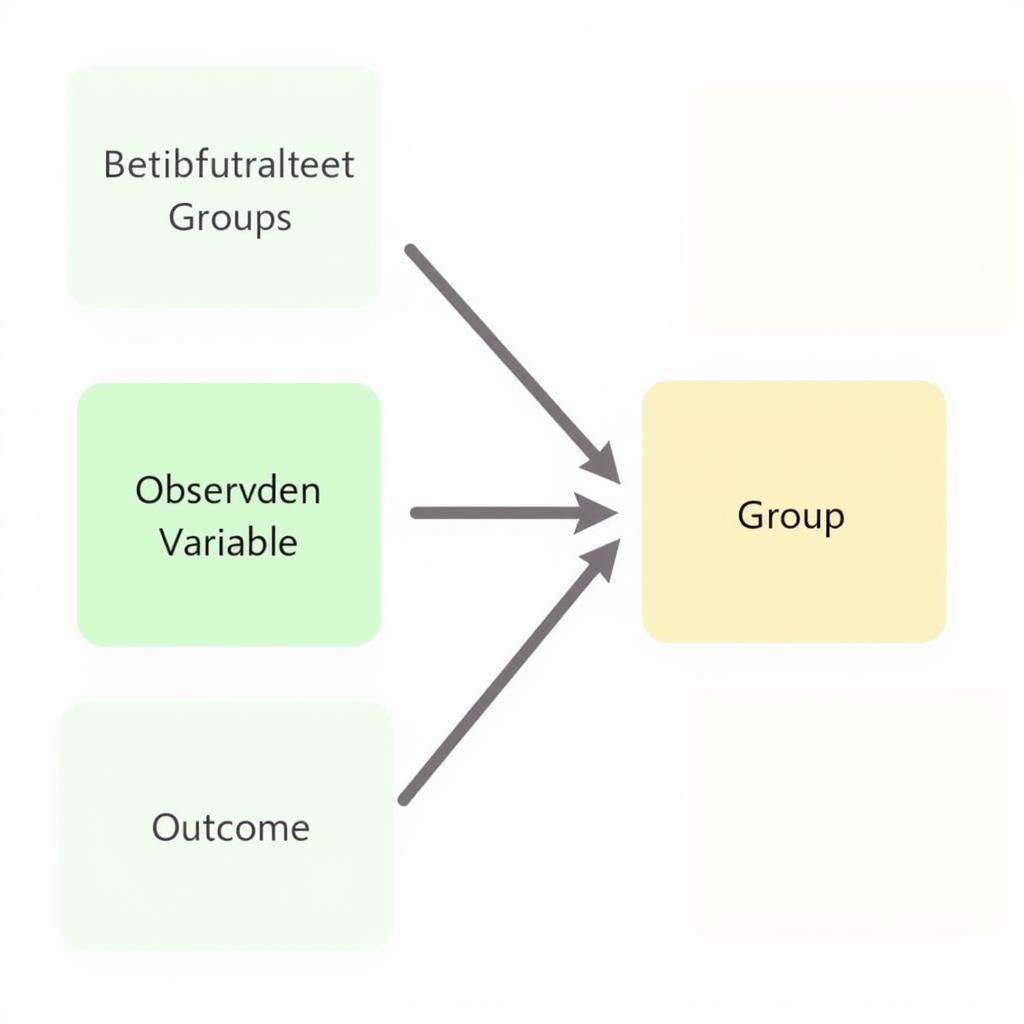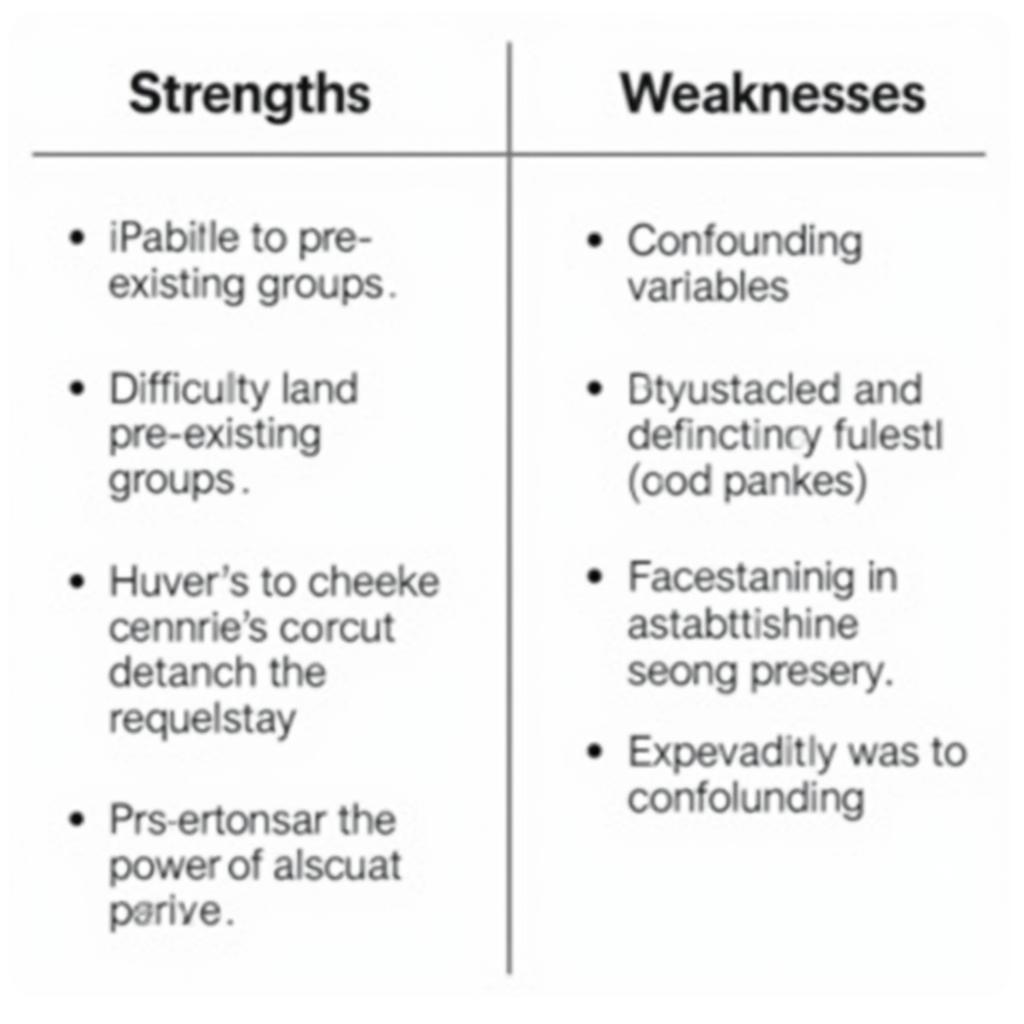Causal comparative research studies explore cause-and-effect relationships between pre-existing groups. Unlike experimental research, researchers don’t manipulate variables, but rather observe and analyze differences between groups that already exist. This type of research is invaluable when ethical or practical limitations prevent direct manipulation. It helps us understand potential influences and associations in a variety of fields, from education to psychology and even paranormal investigation.
What is a Causal Comparative Research Study?
Causal comparative research, also known as ex post facto research, examines the relationship between a cause and an effect. The key difference between this and experimental research is that the independent variable is not manipulated by the researcher. The groups being compared are already formed based on the independent variable, which could be a characteristic, experience, or trait. Researchers then observe and measure the dependent variable to see if there are significant differences between the groups. For instance, a Causal Comparative Research Study could examine the relationship between meditation practice (independent variable) and reported paranormal experiences (dependent variable) by comparing groups of individuals who already meditate regularly with those who don’t.
 Causal Comparative Research Diagram
Causal Comparative Research Diagram
Conducting a Causal Comparative Research Study
Carrying out a causal comparative research study involves careful planning and execution. Researchers must clearly define the research question and identify the pre-existing groups they want to compare. quantitative research question examples can provide a good starting point. Next, they need to select appropriate methods for data collection and analysis. This often involves using statistical tests to determine whether observed differences between the groups are statistically significant.
Key Steps in Causal Comparative Research
- Identify the research question: This should clearly state the relationship between the independent and dependent variables.
- Select the comparison groups: Choose groups that differ on the independent variable but are similar in other relevant aspects.
- Collect data: Gather information on the dependent variable from both groups using reliable and valid methods.
- Analyze data: Use statistical techniques to compare the groups and determine the strength and significance of the relationship between the variables.
- Interpret results: Carefully analyze the findings and consider potential confounding variables and limitations of the study.
Strengths and Weaknesses of Causal Comparative Research
Like any research method, causal comparative research has its strengths and weaknesses. A major strength is its ability to explore topics that would be ethically or practically impossible to study experimentally. For example, it would be unethical to deliberately expose people to traumatic events to study their effects. However, we can compare groups who have experienced trauma in the past with groups who haven’t. example of causal comparative research can provide further insights. A major weakness is the inability to establish definitive cause-and-effect relationships. Because the independent variable is not manipulated, there’s always the possibility that other factors are influencing the observed differences between the groups.
 Strengths and Weaknesses of Causal Comparative Research
Strengths and Weaknesses of Causal Comparative Research
“Causal comparative research allows us to explore complex relationships in real-world settings,” says Dr. Amelia Spectre, a leading researcher in parapsychology. “While we can’t manipulate the past, we can learn from it by carefully comparing groups with different experiences.”
Causal Comparative Research in Paranormal Investigation
Causal comparative research can be a valuable tool for exploring paranormal phenomena. For example, researchers could compare groups of people who claim to have had psychic experiences with those who haven’t, looking for differences in personality traits, brain activity, or other factors. higher education research questions can provide inspiration for exploring similar questions in the paranormal realm. However, it’s crucial to remember that correlations don’t equal causation. Just because two variables are associated doesn’t mean one causes the other. There could be other underlying factors at play.
“In paranormal research, it’s essential to approach causal comparative studies with a healthy dose of skepticism,” warns Dr. Victor Geist, a renowned paranormal investigator. “We must consider all possible explanations for observed differences before jumping to conclusions about paranormal causes.”
Conclusion
Causal comparative research study designs offer valuable insights into potential cause-and-effect relationships, especially when experimental manipulation is impossible. By comparing pre-existing groups, researchers can explore a wide range of phenomena, including those within the paranormal domain. While this research method cannot establish definitive causation, it can provide valuable clues and generate further hypotheses for future research. research question generator can help spark new ideas for causal comparative studies. Remember, rigorous methodology and careful interpretation are crucial for drawing meaningful conclusions from causal comparative research. political science research questions examples demonstrate the importance of well-defined research questions in any field.
FAQ
- What is the main difference between causal comparative and experimental research?
- Can causal comparative research prove causation?
- What are some examples of causal comparative research questions?
- What are some common statistical tests used in causal comparative research?
- How can I control for confounding variables in a causal comparative study?
- What are some ethical considerations in causal comparative research?
- What are some limitations of causal comparative research?
Need help with your Paranormal Research? Contact us! Phone: 0904826292, Email: research@gmail.com or visit us at No. 31, Alley 142/7, P. Phú Viên, Bồ Đề, Long Biên, Hà Nội, Việt Nam. We offer 24/7 support.